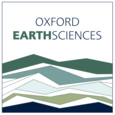Statements and Policies
Statement of Values

Our Department strives for research and teaching excellence. We believe the following values are important if our Department is to be a community where academics can do their best work, students can have the best experience, and work can be the most impactful to society.
We intend to uphold these principles firstly because it is ethical and right to do so. We also acknowledge that the quality of research and teaching improves when a community is more diverse and inclusive.
We hope that by following these principles, the Department will have a beneficial impact on society.
- Equity
- Diversity
- Inclusion, Inclusivity, and Community
- Respect
- Engagement, Organisation, and Evolution
- Integrity
- Discovery, Exploration, and Scientific Creativity
- Global and Beneficial to Society
1. Equity
We recognise that not all individuals have had access to the same opportunities. We believe all members of our Department should experience equitable treatment. Equity means fairness and justice, achieved by providing everyone with the support they need to reach their full potential.
We aim to ensure equitable treatment of members of the Department, in our approach to teaching and supporting students, employing and managing staff, and supporting the research and development of academics and faculty members.
2. Diversity
We acknowledge difference, and that there is merit in difference. Diversity of identities, cultural backgrounds, life paths, and choices lead to the enrichment of us all, culturally and academically.
3. Inclusion, Inclusivity, and Community
As a Department, we strive to make everyone feel part of our community. We are conscious of engaging people of diverse backgrounds, and ensuring everyone feels comfortable and welcome. To do this, we need to remove barriers to inclusion, such as discrimination.
We want the Department to be accessible to all, both in terms of its physical accessibility, its teaching and course material, fieldtrips and fieldwork, social activities, organisational structures, and its recruitment and admissions processes. We encourage projects such as ‘affinity groups’ supporting minoritized groups in finding community with the Department, and generating opportunities for mentorship. We advocate community decision-making, ensuring everyone at all levels of the Department has a say in the future of the Department.
4. Respect
We believe that everyone is deserving of respect. In particular, we want to ensure that people from minoritized groups or who have protected characteristics are respected. We also respect individuals’ knowledge at all stages of their careers and lives, from undergraduates to faculty and staff members.
5. Engagement, Organisation, and Evolution
We believe it is important to have a community that is engaged in shaping the present and future of our Department. We intend to be self-reflective, adaptable, and able to organise in order to change and evolve.
We will re-visit this statement of principles annually to ensure they remain the most appropriate set of values from which we can build a better community. We acknowledge that there is a disparity between our present state (where we are yet to be as diverse and inclusive a community as we could be), and our aspirations for becoming a better community in the future. However, we believe that we have huge potential to celebrate contributions from people from all walks of life, considering the global and wide-ranging nature of the Earth Sciences.
6. Integrity
We make a genuine commitment to upholding the principles detailed here.
7. Discovery, Exploration, and Scientific Creativity
We want our Department to be an environment that encourages discovery, exploration, and scientific creativity amongst our students, researchers, and faculty members. We believe upholding the principles detailed here allows us to better pursue these aims.
8. Global and Beneficial to Society
We think our community should be one with a global outlook, and should act with the intention of being beneficial to society. We hope our research and teaching will address societal issues and benefit humans’ relationship with the Earth. We want our undergraduate course to reflect our students, who are global citizens, have diverse viewpoints, and wish to undertake science motivated by their relationship to the planet. We recognise the necessity of decolonising our course content and research, understanding that western knowledge is only one form of knowledge, and that we should be informed as to the colonial history of subject matter. We will strive to teach and research in a way that acknowledges that Earth Sciences happens in diverse communities and places, requiring global collaboration and knowledge exchange.




